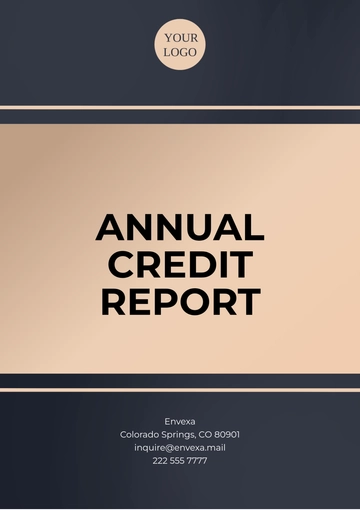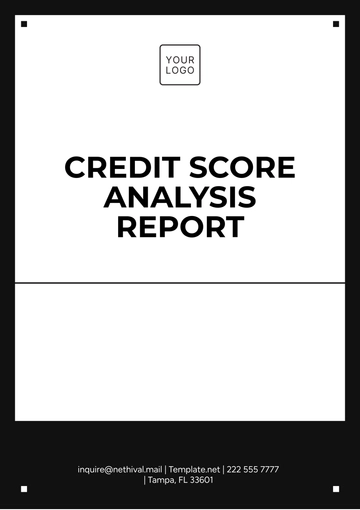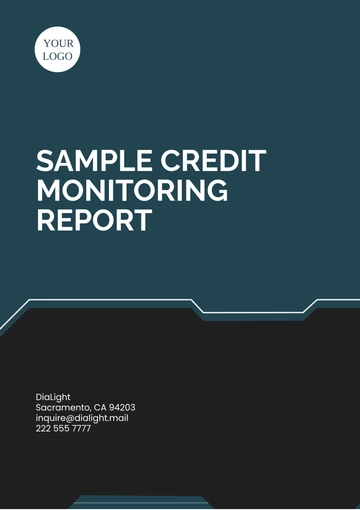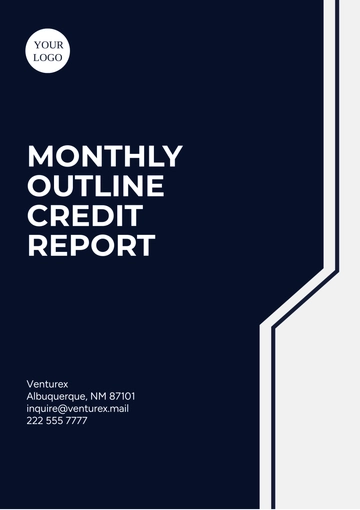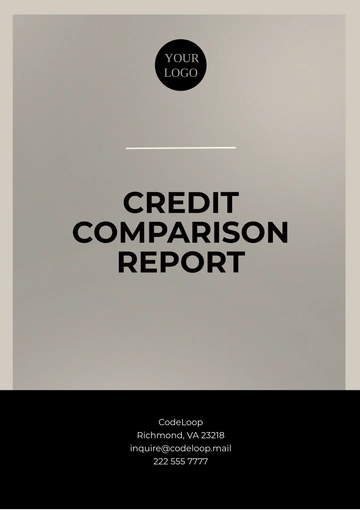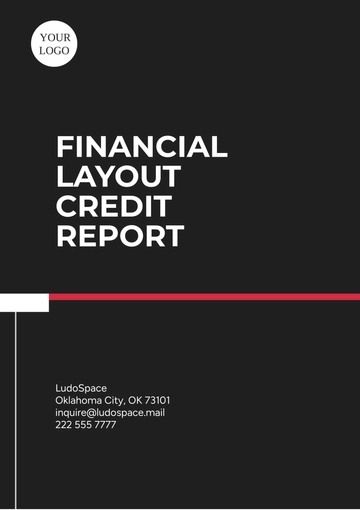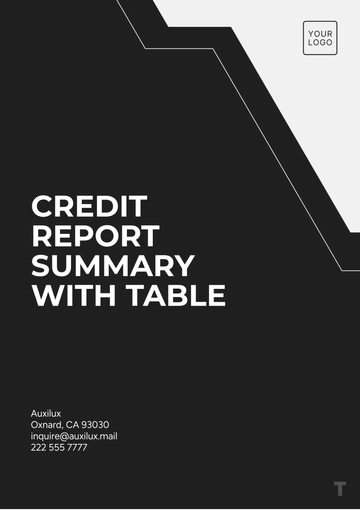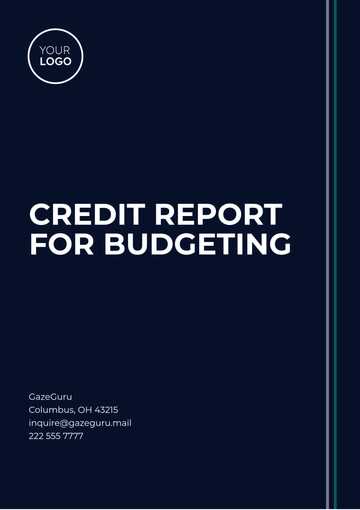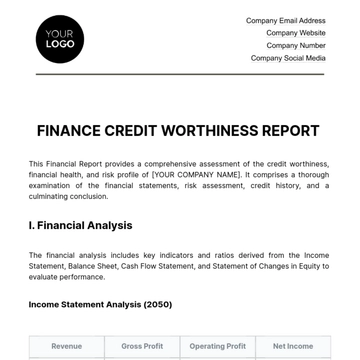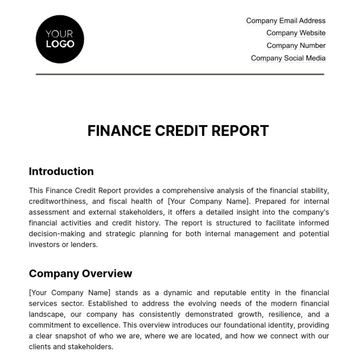Free Financial Layout Credit Report
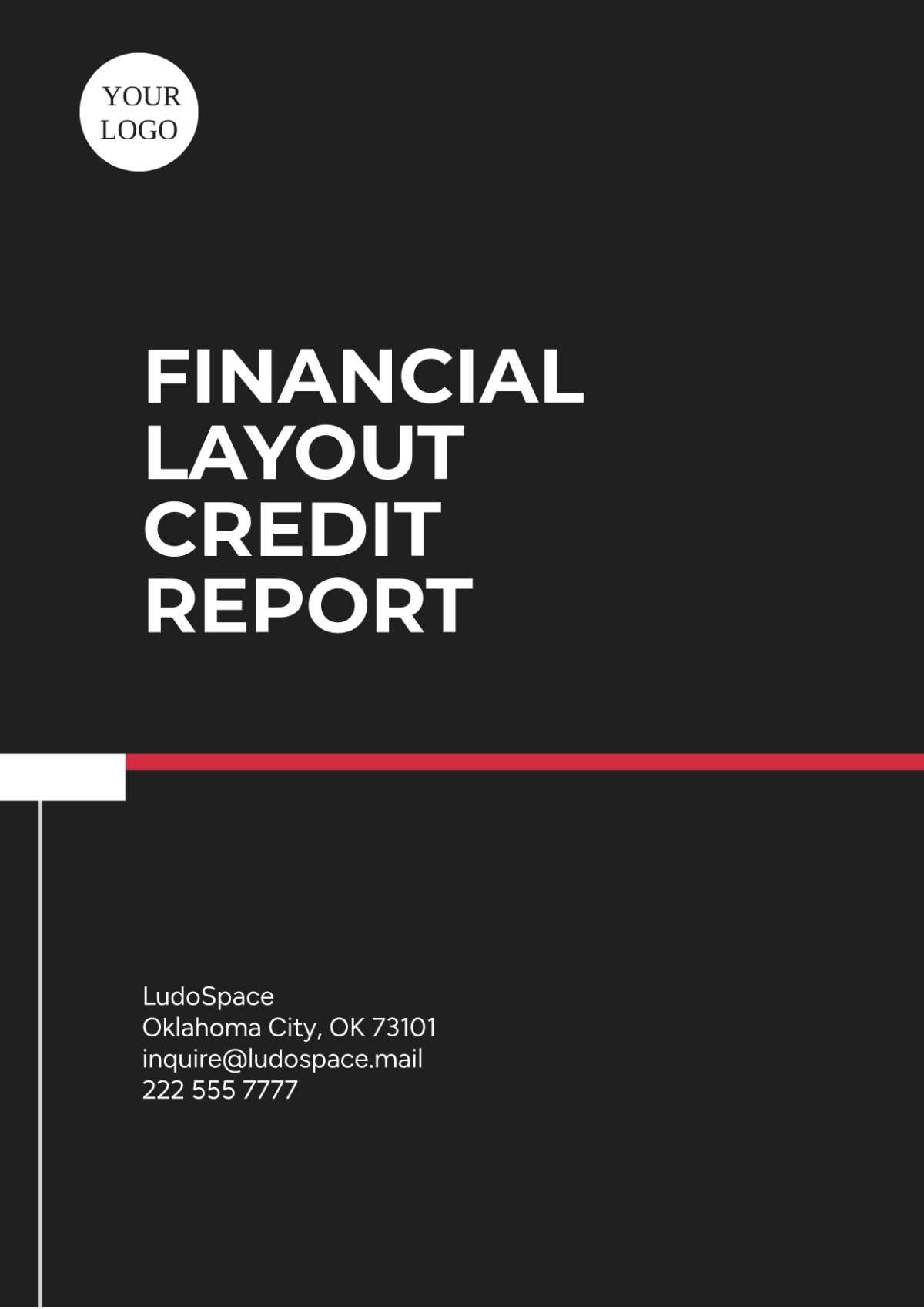
I. Overview of Credit Report
This credit report provides a comprehensive overview of an individual's financial standing. It is structured to highlight key aspects of credit assessment, offering a detailed analysis of credit history, current credit status, and predictive credit risk factors. Understanding these components is crucial for effective financial planning and risk management.
A. Introduction to Credit Reports
A credit report is a detailed record of an individual's credit history compiled by a credit bureau. It includes credit accounts, payment history, and any recorded financial delinquencies. These reports play a critical role in financial decision-making processes for both individuals and lenders.
B. Importance of Credit Reports
Credit reports are essential for determining creditworthiness. They are used by lenders, landlords, and even employers to assess financial responsibility. A good credit report can lead to better interest rates and credit terms, while a poor report can limit financial opportunities.
II. Components of a Credit Report
This section provides a detailed breakdown of the key components found within a credit report, highlighting the significance of each element.
A. Personal Information
Name
Address
Social Security Number
Employment Information
Accurate personal information ensures that the credit report is valid and refers to the correct individual.
B. Credit Accounts
Credit accounts, also known as trade lines, reflect an individual's credit history. They include credit cards, mortgages, student loans, and other forms of credit.
Account Type | Opened Date | Credit Limit | Status |
|---|---|---|---|
Credit Card | 01/15/2050 | $5,000 | Open |
Mortgage | 06/20/2051 | $150,000 | Current |
C. Payment History
Payment history is a record of all payments made towards credit obligations. It is a crucial factor in determining creditworthiness, as it shows the track record of on-time payments versus missed payments.
D. Credit Inquiries
Each time a lender checks your credit score, an inquiry is recorded. There are two types of credit inquiries: hard and soft. Hard inquiries can impact your credit score, whereas soft inquiries do not.
E. Public Records
This section includes bankruptcies, tax liens, and judgments, all of which can significantly impact credit scores.
III. Assessing Creditworthiness
Creditworthiness is assessed through a detailed examination of various factors found within the credit report. This section outlines the criteria used to evaluate the financial stability and reliability of the individual.
A. Credit Score
The credit score is a numerical expression based on a level analysis of a person's credit files, representing the creditworthiness of an individual.
Credit Score Range | Rating |
|---|---|
300-579 | Poor |
580-669 | Fair |
670-739 | Good |
740-799 | Very Good |
800-850 | Excellent |
B. Debt-to-Credit Ratio
This ratio represents the amount of available credit being used and is a critical indicator of financial health. A lower ratio suggests better debt management skills.
C. Longevity of Credit History
The length of credit history is another factor considered in evaluating creditworthiness. Longer credit histories generally lead to higher credit scores.
IV. Improving Your Credit Report
Maintaining and improving a credit report is essential for financial health and stability. This section provides insights into how individuals can improve their credit status for better financial opportunities.
A. Tips for Improving Credit Score
Pay bills on time
Reduce debt levels
Avoid opening new credit accounts unnecessarily.
Check credit reports regularly for errors.
B. Correcting Errors on Credit Report
Errors on a credit report can lower credit scores. It is important to regularly review and dispute any inaccuracies with the credit bureau to ensure the report accurately reflects the individual's financial history.
Conclusion
In conclusion, a thorough understanding of the credit report components and maintaining a healthy credit profile are essential in managing financial well-being. Regular vigilance and proactive financial habits are key to ensuring a favorable credit score and report.
Prepared by:
[YOUR NAME]
[YOUR COMPANY NAME]
[DATE]
- 100% Customizable, free editor
- Access 1 Million+ Templates, photo’s & graphics
- Download or share as a template
- Click and replace photos, graphics, text, backgrounds
- Resize, crop, AI write & more
- Access advanced editor
You may also like
- Sales Report
- Daily Report
- Project Report
- Business Report
- Weekly Report
- Incident Report
- Annual Report
- Report Layout
- Report Design
- Progress Report
- Marketing Report
- Company Report
- Monthly Report
- Audit Report
- Status Report
- School Report
- Reports Hr
- Management Report
- Project Status Report
- Handover Report
- Health And Safety Report
- Restaurant Report
- Construction Report
- Research Report
- Evaluation Report
- Investigation Report
- Employee Report
- Advertising Report
- Weekly Status Report
- Project Management Report
- Finance Report
- Service Report
- Technical Report
- Meeting Report
- Quarterly Report
- Inspection Report
- Medical Report
- Test Report
- Summary Report
- Inventory Report
- Valuation Report
- Operations Report
- Payroll Report
- Training Report
- Job Report
- Case Report
- Performance Report
- Board Report
- Internal Audit Report
- Student Report
- Monthly Management Report
- Small Business Report
- Accident Report
- Call Center Report
- Activity Report
- IT and Software Report
- Internship Report
- Visit Report
- Product Report
- Book Report
- Property Report
- Recruitment Report
- University Report
- Event Report
- SEO Report
- Conference Report
- Narrative Report
- Nursing Home Report
- Preschool Report
- Call Report
- Customer Report
- Employee Incident Report
- Accomplishment Report
- Social Media Report
- Work From Home Report
- Security Report
- Damage Report
- Quality Report
- Internal Report
- Nurse Report
- Real Estate Report
- Hotel Report
- Equipment Report
- Credit Report
- Field Report
- Non Profit Report
- Maintenance Report
- News Report
- Survey Report
- Executive Report
- Law Firm Report
- Advertising Agency Report
- Interior Design Report
- Travel Agency Report
- Stock Report
- Salon Report
- Bug Report
- Workplace Report
- Action Report
- Investor Report
- Cleaning Services Report
- Consulting Report
- Freelancer Report
- Site Visit Report
- Trip Report
- Classroom Observation Report
- Vehicle Report
- Final Report
- Software Report



